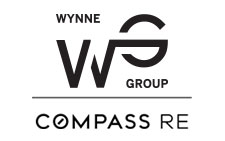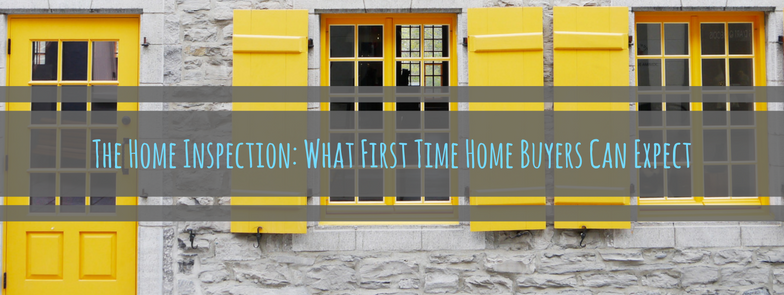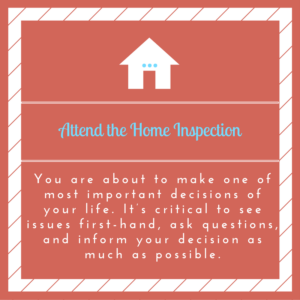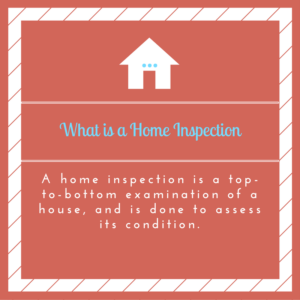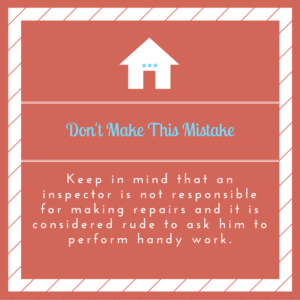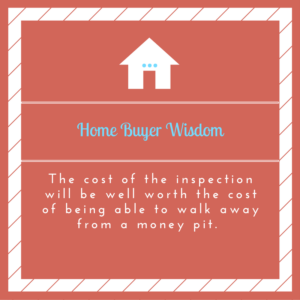You wouldn’t buy a car without taking a test drive or a laptop without tinkering away at the Apple store first. The same applies to buying a house. Having your potential home inspected is one of the most important steps in the home buying process, yet many first time home buyers have no idea what to expect.
Getting started.
Congratulations! You’ve talked to lenders, found a realtor, gone to numerous open houses, and now you’ve found your dream house. Before you complete the buying process, you have to get the house inspected. There are a couple of things you should note about the home inspection process.
Click to get pre-approved for a home mortgage!
1) Do your research and vet out the best possible inspector to ensure you get your money’s worth. Ask potential inspectors for sample reports. Did he give previous clients one-page reports with checklists and vague recommendations or extensive, multi-page reports with detailed information and pictures? Check out professional organizations such as the National Association of Home Inspectors, the American Society of Home Inspectors, and the International Association of Certified Home Inspectors, who require members to pass an exam, complete continuing education courses, and honor a code of ethics. Also, don’t forget to reach out to friends, family, and colleagues, or your real estate agent for referrals.
2) Attend the home inspection. Many first time home buyers make this mistake, so let me repeat that: attend the home inspection. You are about to make one of the largest, most important decisions of your life, and it’s critical to see issues first-hand, ask questions directly to the inspector, and inform your decision as much as possible.Getting an inspection is optional, but taking this extra step can potentially save you hundreds, even thousands of dollars as well as a lot of time and heartache. The inspector is trained to identify and point out potential problems that can easily be missed by your Uncle Anthony, even if he is a contractor.
A home inspection will take approximately 2-3 hours and cost you $300 – $700. Make sure you tag along as they go through the home.
What do inspectors look for?
An inspection is comparable to getting a full body physical from your doctor. He will do a top-to-bottom examination to make an accurate assessments of the house’s condition. Each state has its own requirements, but the American Society of Home Inspectors (ASHI) suggests inspectors check the following areas:
• Foundation and basement, roof or chimney repairs
• Any additional structural components
• Interior plumbing systems
• Interior electrical systems
• Heating and cooling systems
• Condition of windows
• State of doors and door frames
• Health of floors, walls, and ceilings
• The attic and any visible insulation
What not to expect.
Your inspector’s goal is to review and uncover issues with the home itself. Because of that, be aware that he may be limited on finding some issues or making recommendations on the following:
• Pests• Asbestos
• Mold or other potentially hazardous substances
• Status of the inside of walls
• Septic tanks
• Wells, sheds, or additional structures separate from the main house
• Child safety
• Compliance with local building codes
For more information, you may need to refer to additional specialists who can give you a more in-depth examination. Keep in mind that an inspector is not responsible for making repairs and is considered rude to ask him to perform handy work.
I’ve got the inspection report, now what?
After visiting your potential house, the inspector is required to provide you a home inspection report. The report will detail his findings in writing and should include pictures of damaged areas and issues, summaries, and estimates about the remaining useful life of the roof, structure, major systems and equipment, paint, and finishes. Additionally, he should include recommended repairs and replacements.It is essential that you read through the entire inspection report to fully understand issues and required repairs and replacements. If you have questions, do not hesitate to reach out to your inspector and ask questions so that you are in the best place to negotiate with the seller. Negotiations can result in the seller paying for repairs or the seller crediting you money for the repairs. If the seller isn’t willing to negotiate, the cost of the inspection will be well worth the cost of being able to walk away from a money pit.
Need help navigating the home buying process? Agent Lady will lead you through the process, including your inspection, and help you find the right house and neighborhood. And remember, friends don’t let friends buy a home without Agent Lady!
About Agent Lady: Cherise Wynne is a leading real estate agent in Philadelphia, helping home buyers and sellers navigate the City of Brotherly Love, with a special focus on first time home buyers. To chat about getting started with your first time home buying experience, click here.
